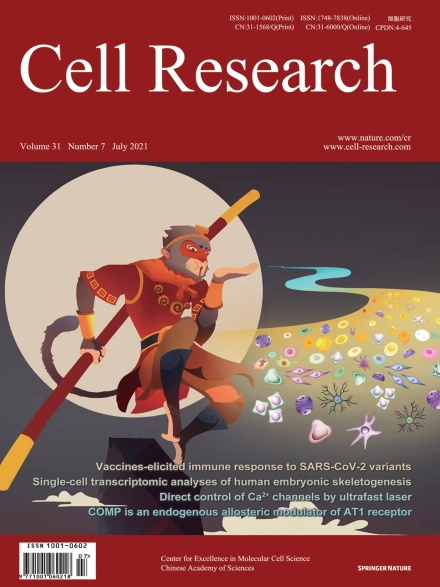
Advanced Search
Submit Manuscript
Advanced Search
Submit Manuscript
Volume 31, No 7, Jul 2021
ISSN: 1001-0602
EISSN: 1748-7838 2018
impact factor 17.848*
(Clarivate Analytics, 2019)
Volume 31 Issue 7, July 2021: 801-813 |
The noncanonical role of the protease cathepsin D as a cofilin phosphatase
Yi-Jun Liu1,2,* , Ting Zhang1,2 , Sicong Chen3 , Daxiao Cheng1,2 , Cunjin Wu2 , Xingyue Wang1,2 , Duo Duan2 , Liya Zhu1,2 , Huifang Lou1,2 , Zhefeng Gong2 , Xiao-Dong Wang2,4,* , Margaret S. Ho5,* , Shumin Duan1,2
1Department of Neurobiology and Department of Neurology of Second Affiliated Hospital, Zhejiang University School of Medicine, Hangzhou, Zhejiang 310009, ChinaCathepsin D (cathD) is traditionally regarded as a lysosomal protease that degrades substrates in acidic compartments. Here we report cathD plays an unconventional role as a cofilin phosphatase orchestrating actin remodeling. In neutral pH environments, the cathD precursor directly dephosphorylates and activates the actin-severing protein cofilin independent of its proteolytic activity, whereas mature cathD degrades cofilin in acidic pH conditions. During development, cathD complements the canonical cofilin phosphatase slingshot and regulates the morphogenesis of actin-based structures. Moreover, suppression of cathD phosphatase activity leads to defective actin organization and cytokinesis failure. Our findings identify cathD as a dual-function molecule, whose functional switch is regulated by environmental pH and its maturation state, and reveal a novel regulatory role of cathD in actin-based cellular processes.
https://doi.org/10.1038/s41422-020-00454-w